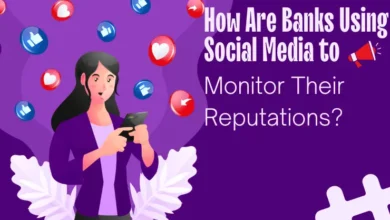Which social media is the most effective for a business purpose: Facebook vs. Twitter

In the realm of digital marketing, the choice between Facebook and Twitter can significantly impact a business’s online presence. Each platform offers distinct advantages and caters to different audiences.
Today we’ll unravel the strengths and weaknesses of Facebook and Twitter for business purposes, exploring their nuances, SEO strategies, and their role in brand building.
Understanding the Social Media Trio: Facebook, Twitter, and Instagram
1. Facebook: The Social Giant
Facebook, with its colossal user base, is a versatile platform. It allows businesses to create detailed profiles, share multimedia content, and engage with audiences through comments, likes, and shares. The advertising capabilities on Facebook are robust, enabling targeted campaigns.
2. Twitter: The Microblogging Maverick
Twitter, known for its real-time, concise content, is ideal for quick updates, announcements, and engaging in conversations. The use of hashtags makes it easy to follow trends and join broader discussions. Twitter’s character limit encourages brevity and immediacy.
3. Instagram: Visual Storytelling
Instagram, while not the primary focus of this comparison, is worth mentioning due to its visual-centric nature. Owned by Facebook, Instagram emphasizes visually appealing content, making it a hub for brand storytelling through images and short videos. Instagram can prove to be excellent in Insta SEO strategies in brand building.
Facebook vs. Twitter: The Face-Off
1. Audience Demographics
Facebook:
- Diverse Demographics: Facebook boasts a broad user base, appealing to various age groups and demographics.
- Global Reach: It has a global presence, making it suitable for businesses targeting an international audience.
Twitter:
- Younger Audience: Twitter tends to attract a younger audience, making it ideal for brands targeting millennials and Gen Z.
- Real-time Engagement: The platform excels in real-time engagement, suitable for trending topics and current events.
2. Content Formats
Facebook:
- Rich Multimedia: Businesses can share a variety of content, including text, images, videos, and links.
- Long-form Content: Facebook accommodates longer captions and detailed posts.
Twitter:
- Concise Updates: Twitter’s character limit encourages concise messaging.
- Visual Content: While not as image-centric as Instagram, Twitter supports visual content.
3. Advertising Opportunities
Facebook:
- Targeted Ads: The platform’s advertising tools offer precise targeting based on demographics, interests, and behaviors.
- Diverse Ad Formats: Businesses can use image ads, video ads, carousel ads, and more.
Twitter:
- Promoted Tweets: Twitter’s advertising primarily revolves around promoted tweets.
- Follower Campaigns: Businesses can promote their account to gain more followers.
4. Engagement and Interaction
Facebook:
- Comment Threads: Discussions on Facebook often involve longer comment threads.
- Likes and Shares: Users can express engagement through likes and shares.
Twitter:
- Retweets and Likes: Retweets amplify the reach of tweets, while likes indicate approval.
- Direct Engagement: The character limit encourages direct engagement through replies.
 Vs
Vs
Twitter SEO vs. Facebook SEO
1. Twitter SEO Strategies
- Keyword Optimization: Incorporate relevant keywords in your Twitter bio, tweets, and hashtags.
- Profile Optimization: Complete your profile with accurate information, including a profile picture, bio, and website link.
- Engage in Conversations: Participate in conversations, respond to mentions, and use trending hashtags.
2. Facebook SEO Strategies
- Optimize Page Information: Fill out your Facebook page with accurate details, including business hours, contact information, and a compelling About Us section.
- Quality Content: Share high-quality content that encourages engagement, as Facebook’s algorithm prioritizes posts with higher interaction.
Benefits and Drawbacks of Facebook and Twitter for Brand Building
Benefits of Facebook for Brand Building
- Extensive Reach: With over 2.8 billion monthly active users, Facebook offers unparalleled reach.
- Diverse Content: The platform accommodates a wide range of content types, allowing for comprehensive brand storytelling.
- Robust Analytics: Businesses can access detailed analytics to measure the performance of their content and advertising campaigns.
Drawbacks of Facebook for Brand Building
- Algorithm Changes: Frequent changes in Facebook’s algorithm can impact organic reach.
- Saturation: With millions of businesses on the platform, there’s intense competition for user attention.
Benefits of Twitter for Brand Building
- Real-time Engagement: Twitter excels in real-time conversations, making it ideal for current events and trends.
- Hashtag Visibility: Effective use of hashtags can significantly increase the visibility of tweets.
- Direct Interaction: The character limit encourages direct and succinct communication with the audience.
Drawbacks of Twitter for Brand Building
- Character Limitations: The character limit can be restrictive for conveying detailed information.
- Fast-paced Nature: Tweets can quickly get buried in a fast-paced feed, reducing their visibility over time.
FAQs: Deciphering the Social Media Puzzle
Q1: Can Digiupdate.net Optimize Both Facebook and Twitter for My Business?
A1: Absolutely! Digiupdate.net specializes in optimizing social media platforms and strategies, including Facebook and Twitter. Our experts tailor strategies to align with your business goals and target audience.
Q2: Is Facebook Advertising More Effective Than Twitter Advertising?
A2: The effectiveness of advertising depends on various factors, including your target audience and campaign goals. Digiupdate.net can conduct a thorough analysis to determine the most suitable platform for your advertising needs.
Q3: Can I Use Both Facebook and Twitter for My Business?
A3: Certainly! Many businesses successfully use both platforms to reach different segments of their audience. A diversified approach can enhance overall brand visibility.
Q4: How Can I Measure the Success of my Social Media Campaigns?
A4: Digiupdate.net employs advanced analytics tools to measure the success of your social media campaigns. Metrics such as reach, engagement, and conversions provide insights into campaign effectiveness.
Digiupdate.net: Elevating Your Social Media Presence
Strategic Social Media Optimization
Digiupdate.net excels in crafting strategic social media optimization plans. We leverage the unique strengths of each platform to amplify your brand’s online presence.
Holistic Approach to Digital Marketing
Our digital marketing experts adopt a holistic approach, ensuring that your brand’s messaging is consistent across platforms. From Facebook to Twitter, we tailor our strategies to resonate with your audience.
Innovation at the Forefront
In the dynamic landscape of digital marketing, innovation is key. Digiupdate.net remains at the forefront, consistently adopting the latest trends and technologies to keep your brand ahead.
Data-Driven Decision Making
We believe in the power of data. Digiupdate.net utilizes advanced analytics to inform decision-making, ensuring that our strategies are continuously refined for optimal results.
Unlock Your Brand’s Potential with Digiupdate.net
In conclusion, whether it’s the expansive reach of Facebook or the real-time engagement of Twitter, Digiupdate.net is your go-to partner for navigating the complex landscape of social media. With our expertise, your brand can harness the full potential of Facebook, Twitter, and other platforms, propelling your business to new heights in the digital sphere. Connect with Digiupdate.net, and let




